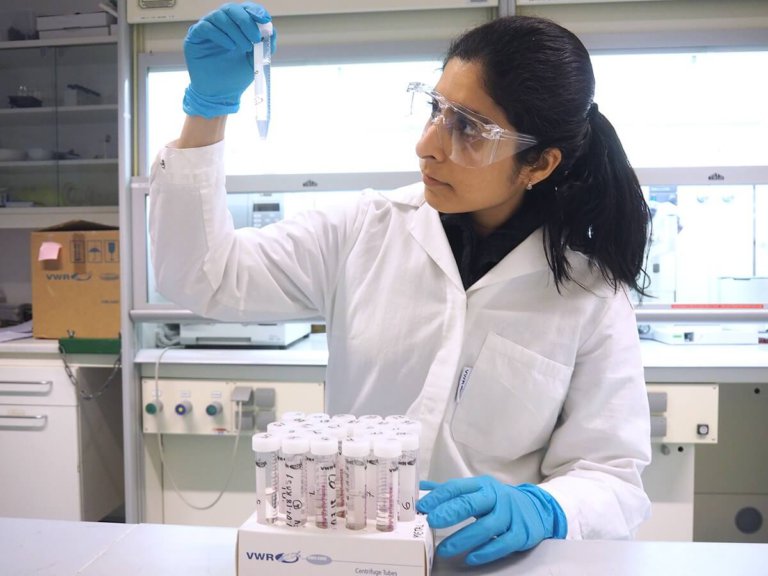
US engineering schools play an important role in furthering advancement in the region — and increasingly, around the world. See, the engineers they produce bring their expertise to all sorts of projects and fields. From the lab to the site, their knowledge and skills form the building blocks of human advancement.
According to the Renewable Resources Journal, the world’s population is projected to grow by two billion over the next 20 years — 95% of this growth will take place in developing or underdeveloped countries, which creates an urgent need for engineers who can solve new and emerging issues. These solutions must not only be economically and commercially feasible but also consider environmental and human resources.
If you see yourself shaping a better future in this way, it’s time to get a headstart at one of these four US engineering schools. Each is part of an esteemed university equipping the next generation of qualified professionals.
COLLEGE OF ENGINEERING, CARNEGIE MELLON UNIVERSITY
Of the US engineering schools popular among international students, the Department of Civil and Environmental Engineering (CEE) at Carnegie Mellon University (CMU), Pennsylvania is always 10 steps ahead. CEE possesses the expertise and facilities to prepare students for the new and emerging problems of tomorrow. Whether it’s through building intelligent infrastructure systems or engineering more resilient materials, this is where innovative engineers find the avenue to maximise their impact on the fast-transforming world.
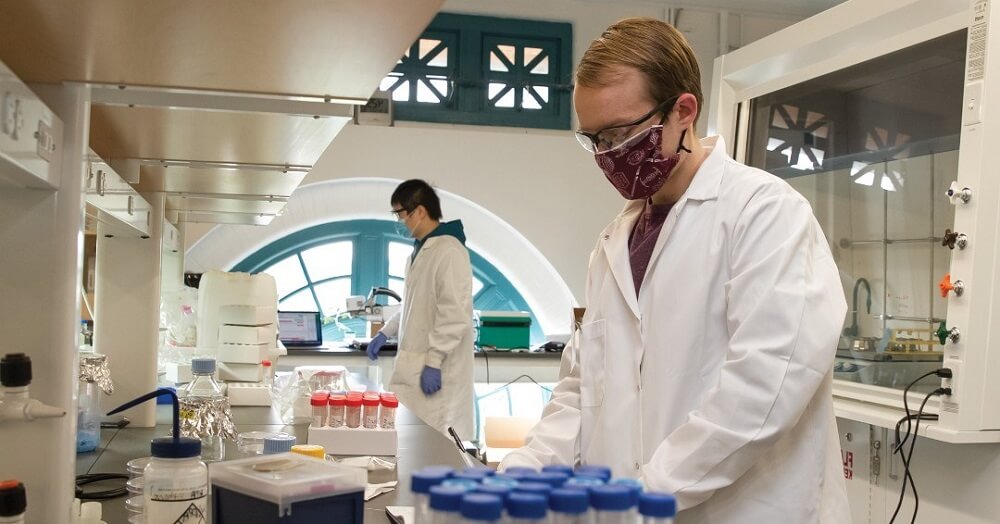
Future changemakers sow the seeds of change in their university’s well-equipped labs. Source: CMU CEE Facebook
Dynamic academic programmes await the curious learner at CMU, from the undergraduate degrees in environmental engineering and civil engineering all the way to postgraduate programmes in civil and environmental engineering. Master’s students may choose from a wide variety of concentrations, including but not limited to Smart Structures, Climate Change Adaptation, as well as Mechanics, Data Science, and Materials. Beyond these, there are also integrated and joint, dual degree programmes.
As a student-centred department, CEE faculty members and staff are quick to respond and adapt to student needs. Departmental support extends to each learning pathway, encouraging a collaborative culture both inside and outside the classroom. You can therefore look forward to working with brilliant individuals from other departments, which will enrich your education and research while equipping you for the future world of work. Check out the official website to learn more.
COLLEGE OF ENGINEERING, UNIVERSITY OF GEORGIA
The School of Chemical, Materials, and Biomedical Engineering at the University of Georgia (UGA) welcomes engineers from various backgrounds to upskill in one of America’s “Public Ivies.” It is where students begin to solve a host of global challenges, including in healthcare and environmentalism. Think renewable energy, biomanufacturing, and advanced therapeutics — these are crucial milestones of human civilisation, and they can only be advanced by passionate experts.
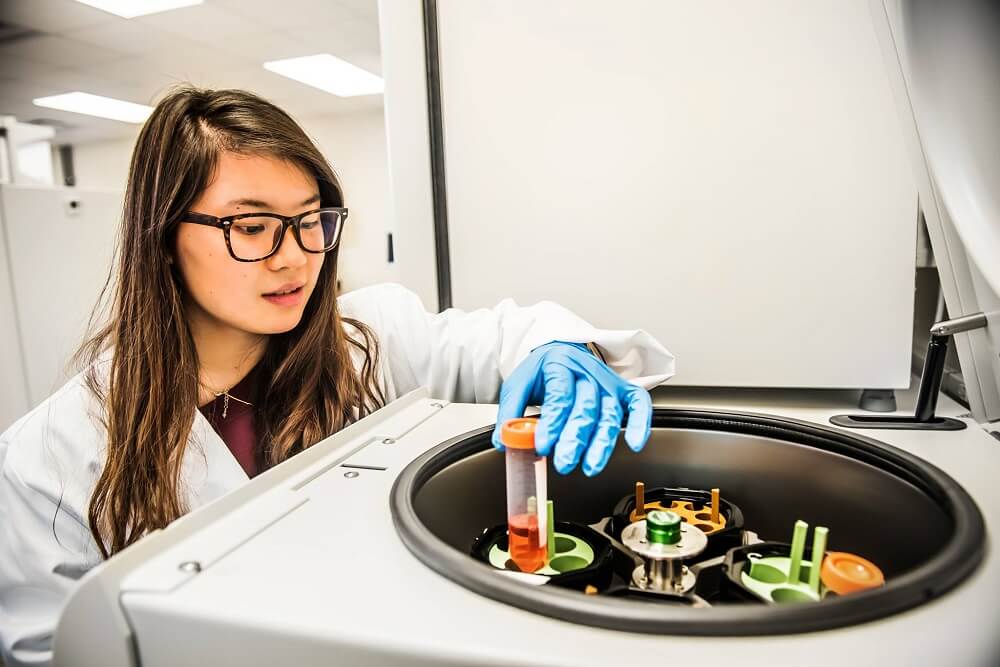
Discover new biological applications with the right programme and facilities. Source: UGA Facebook
Here, you will be able to access accredited undergraduate and graduate degrees that cover biochemical, biological, and bioprocessing for a wide spectrum of applications. UGA is also known for its Double Dawgs programme, which allows you to earn both a bachelor’s and a master’s degree in five years or less. This places graduates on the fast track towards high-impact research and careers; it is perfect for the self-motivated learner eager to get a headstart in the industry.
Regardless of their discipline, graduates leave with the technical expertise, essential skills, and ethical sense necessary to build a better world. How do they gain these? Through meaningful student-professor interactions, engaging practical learning opportunities, and a well-rounded academic experience in Athens, Georgia. Visit the official website for further details.
JOHNS HOPKINS WHITING SCHOOL OF ENGINEERING
Johns Hopkins University (JHU) has a 100-year legacy in producing engineers with the power and know-how to transform society. Whiting School is ranked in the top 20 of US engineering schools, with electrical engineering being one of the earliest disciplines taught. It continues to champion biomedical applications, quantum electronics, and communications sciences to this day.
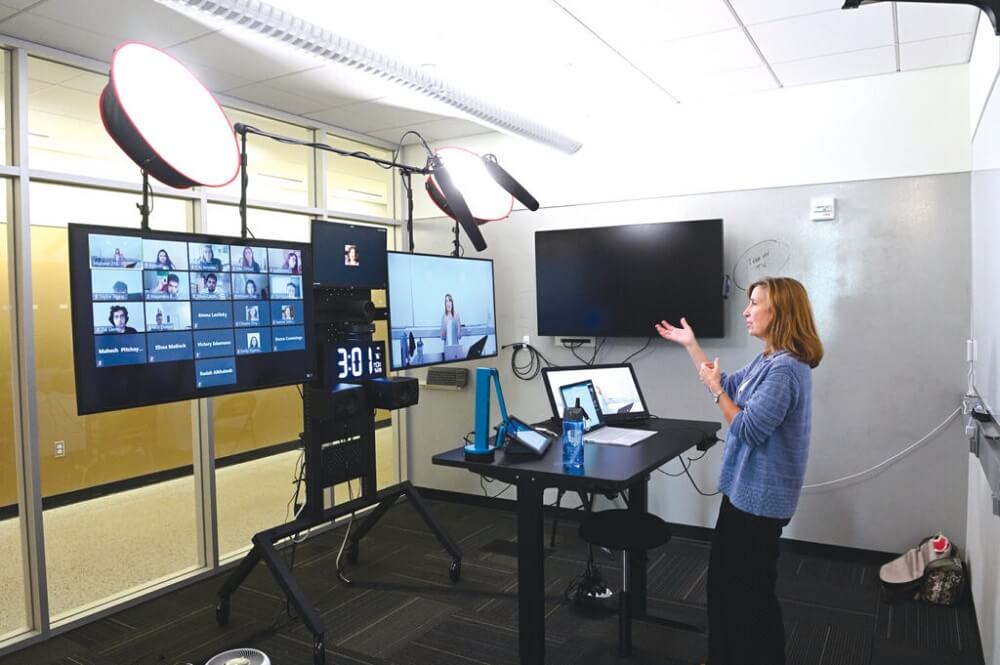
Professor Joanne Selinski teaches a JAVA class online at the Whiting School of Engineering. Source: Whiting School of Engineering Facebook
The department expanded to include computer engineering in the early 80s, furthering discoveries in integrated electronics, imaging and speech processing, and various other facets of information science. Today, graduate engineers pursue the Master of Science in Engineering, which offers 11 electrical and computer engineering specialisations. Whether they are creating neuromorphic devices or developing new photonic applications, students are immersed in a research-rich environment that nurtures creative abilities in tech. They go beyond textbook learning, driven by the curiosity and determination to engineer better, stronger systems.
Plus, the Whiting School has recently invested in training and tech to optimise the learning experience during the pandemic. Its faculty is heavily involved in the industry; they are executive-level scientists and engineers perfectly positioned to guide the builders of tomorrow. To find out more, head on over to the official website.
ERIK JONSSON SCHOOL OF ENGINEERING AND COMPUTER SCIENCE, UT DALLAS
Computer and information engineering plays a crucial part in every modern system. That’s why at the Jonsson School’s Department of Electrical and Computer Engineering, students learn to address complex technical problems using computing and science-based approaches.
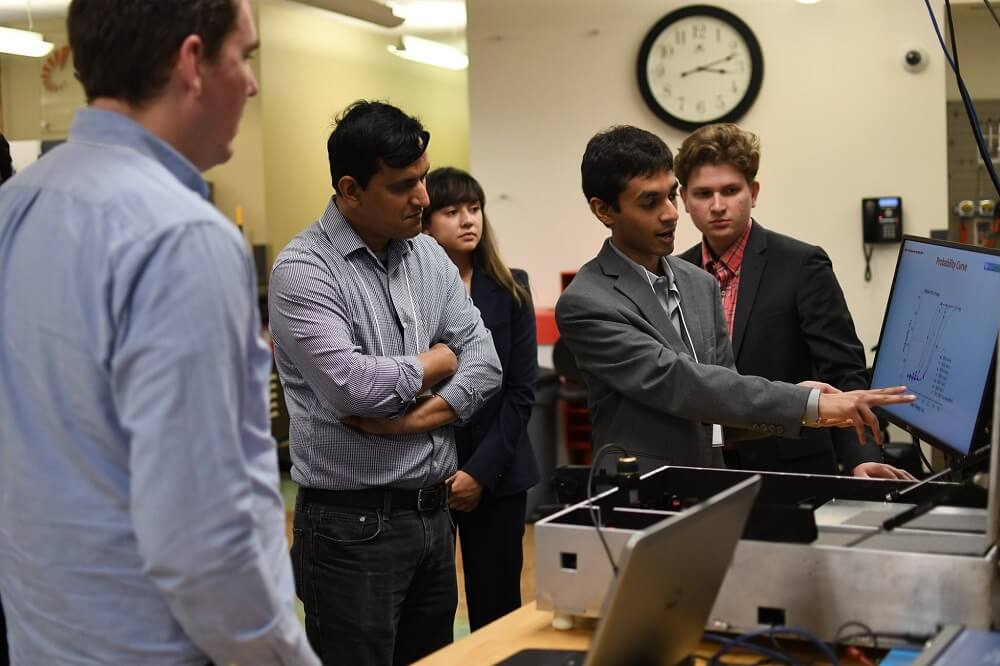
Design, optimise, and create in a supportive, collaborative environment. Source: Jonsson School of Engineering and Computer Science Facebook
UT Dallas students benefit from robust research facilities and exchange programmes that widen the breadth of their degree experience. Graduate students may choose to focus on one of three fields: electrical engineering, computer engineering, or telecommunications engineering, each of which opens up different career pathways. UT Dallas engineering graduates are desired and valued in the job market; they make an average starting salary of US$106,000 yearly.
They design circuits, optimise systems, and create electronic devices. They become effective engineers and impactful researchers. They land in inspiring start-up ventures and admirable corporate positions. Most importantly, they grow into engineers with the vision and capabilities to lead us into a brighter tomorrow.
What makes UT Dallas stand out from other US engineering schools? For one, it offers the resources of a large research university in a tight-knit, private school community. Alumni members testify that this combination provides rewarding flexibility for each student to explore their own path. See more on the official website.
*Some of the institutions featured in this article are commercial partners of Study International







